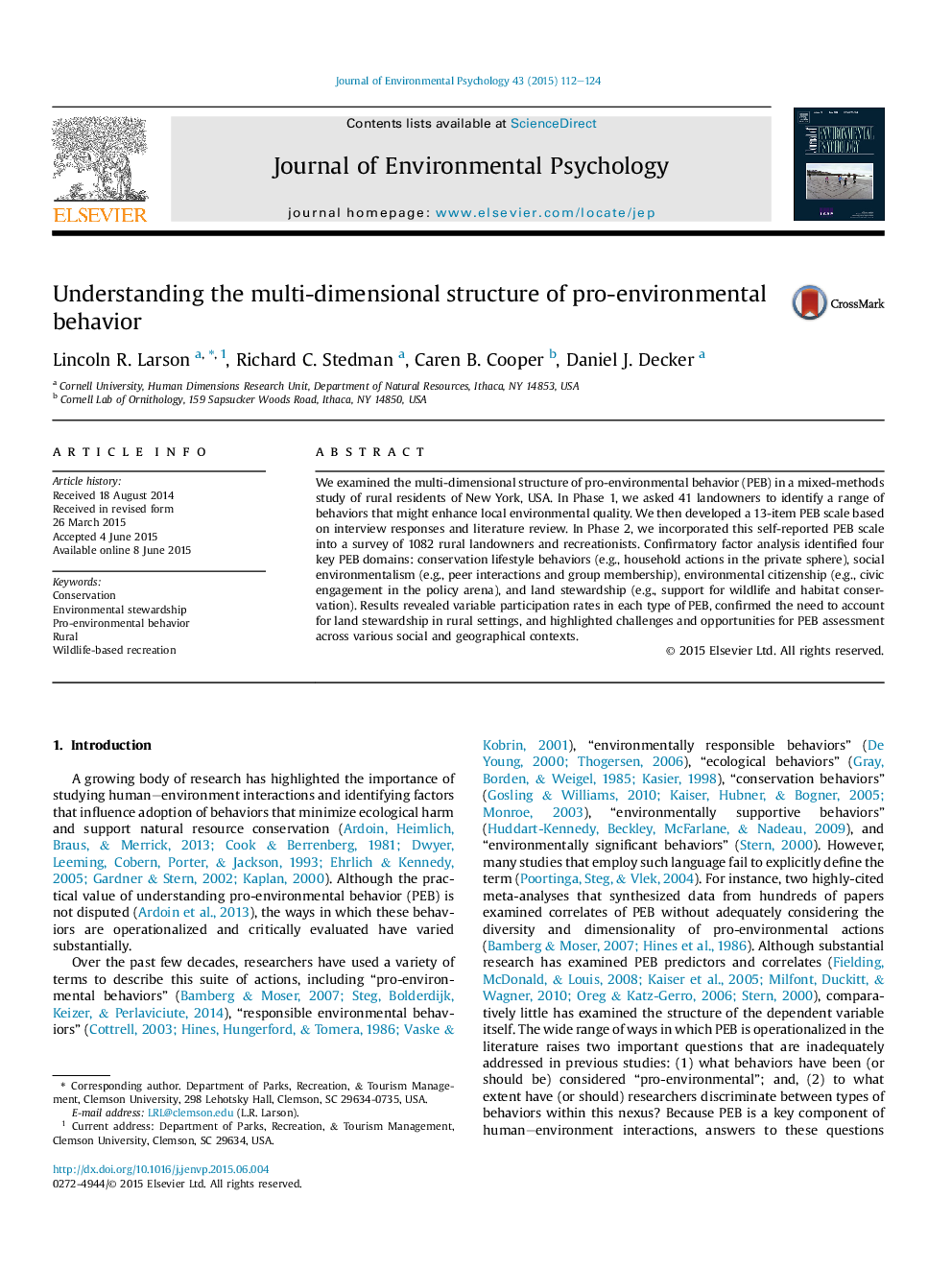| Article ID | Journal | Published Year | Pages | File Type |
|---|---|---|---|---|
| 7245774 | Journal of Environmental Psychology | 2015 | 13 Pages |
Abstract
We examined the multi-dimensional structure of pro-environmental behavior (PEB) in a mixed-methods study of rural residents of New York, USA. In Phase 1, we asked 41 landowners to identify a range of behaviors that might enhance local environmental quality. We then developed a 13-item PEB scale based on interview responses and literature review. In Phase 2, we incorporated this self-reported PEB scale into a survey of 1082 rural landowners and recreationists. Confirmatory factor analysis identified four key PEB domains: conservation lifestyle behaviors (e.g., household actions in the private sphere), social environmentalism (e.g., peer interactions and group membership), environmental citizenship (e.g., civic engagement in the policy arena), and land stewardship (e.g., support for wildlife and habitat conservation). Results revealed variable participation rates in each type of PEB, confirmed the need to account for land stewardship in rural settings, and highlighted challenges and opportunities for PEB assessment across various social and geographical contexts.
Related Topics
Social Sciences and Humanities
Psychology
Applied Psychology
Authors
Lincoln R. Larson, Richard C. Stedman, Caren B. Cooper, Daniel J. Decker,
